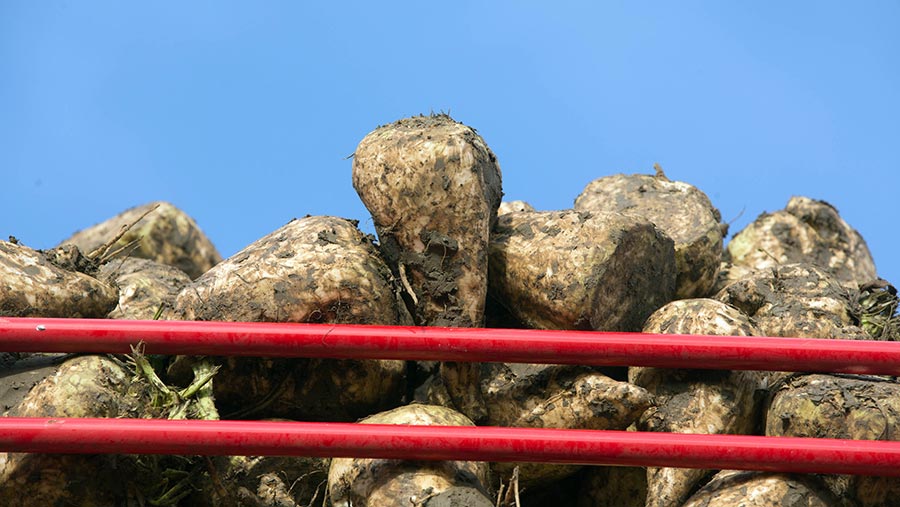Opinion: Let’s vote with our wallets when buying food
It was confirmed recently that Tesco is replacing British Silver Spoon sugar with imported cane sugar from Tate and Lyle.
Customers reacted angrily online, pointing out that the British Sugar factory in Bury St Edmunds, in the UK’s sugar beet heartland, is just 400m away from one of the supermarket’s largest stores.
According to the NFU, sugar beet supports 9,500 jobs across eastern England and is an important contributor to the rural economy.

© Tim Scrivener
And then there is the environmental implications of transporting sugar thousands of miles when a perfectly good local alternative exists.
See also: Concentrating on calving amid the bad news
Sadly, such considerations don’t seem to have swayed the supermarket’s decision – a Tesco spokesman said it was “to avoid any unjustified or unnecessary increases in price”.
Yet British Sugar MD Paul Kenward told Farmers Weekly that the decision came down to “fractions of pennies” on Tesco’s part.
If customers knew this and were presented with a choice, would they still prefer the imported option?
 Liz Haines and her husband Nick milk 320 spring-calving cows in a contract-farming arrangement in north Shropshire.
Liz Haines and her husband Nick milk 320 spring-calving cows in a contract-farming arrangement in north Shropshire.I have a confession to make. Before I sat down to write this column, I checked my cupboards and was embarrassed to discover I had just bought a 5kg bag of Tate and Lyle sugar from Tesco, the only supermarket in our nearest small town.
I picked up the first and only large bag of granulated sugar I saw and thought no more about it until reading the news.
Here lies the problem. Supermarkets make buying decisions on our behalf all the time, and when we accept their products without question, the process is reinforced.
Buying decisions made for us
If I had seen a bag of British sugar with the Red Tractor logo on the shelf, I would undoubtedly have bought that instead, but the choice had already been made for me.
It’s not just Tesco that is to blame. The Co-op doesn’t stock British sugar either, choosing instead to promote Fairtrade cane sugar.
When asked about this decision online, the response from an employee named Jordan, was “We don’t sell British sugar as there’s no such thing. We can’t grow sugar kane (sic) in this country as it’s too cold.”
Unsurprisingly, Jordan received quite a backlash from people who are more informed about sugar beet production in this country, but such comments can be very damaging when taken at face value by the public.
Processed foods
I always buy British meat and dairy, and labelling generally makes this easy (Duchy Originals New Zealand lamb cutlets aside).
But when I buy processed foods, it’s much harder to find out where the ingredients were sourced.
Bagged sugar only accounts for 15% of the UK market – the rest goes into manufacturing, and the same must be true in varying degrees for all the foods we produce.
Supermarkets make a big play of supporting British farmers, with Union Jacks and photos of men in tweed jackets cuddling lambs all over the meat aisle, while quietly filling the other sections with ingredients from all over the world, without any way of us knowing what’s what.
So what can we do about it? We should carry on calling out supermarkets when they make misleading claims about the origin of foods – social media, online petitions, letters to chief executives and lobbying by organisations such as the NFU are all weapons in our arsenal.
We should also praise them when they get it right. It was great to see a photo on the British Farming Forum on Facebook of the meat counter at Morrisons, covered from corner to corner with British meat.
We also need to educate the public about the range of British options available, and vote with our wallets and feet when supermarkets stock them.

